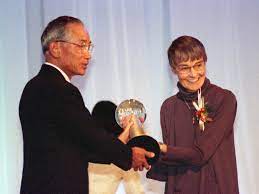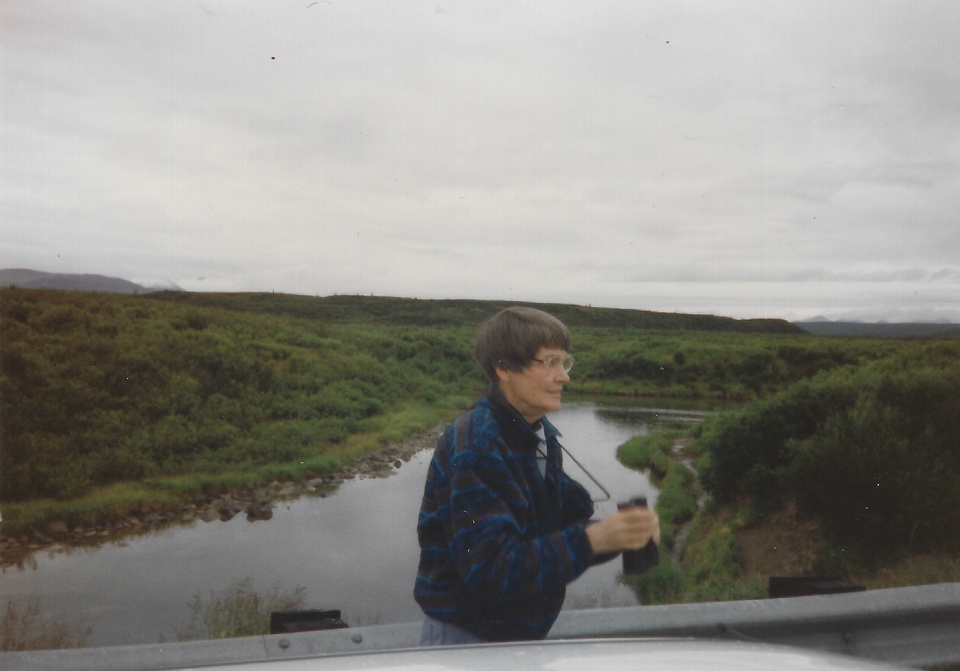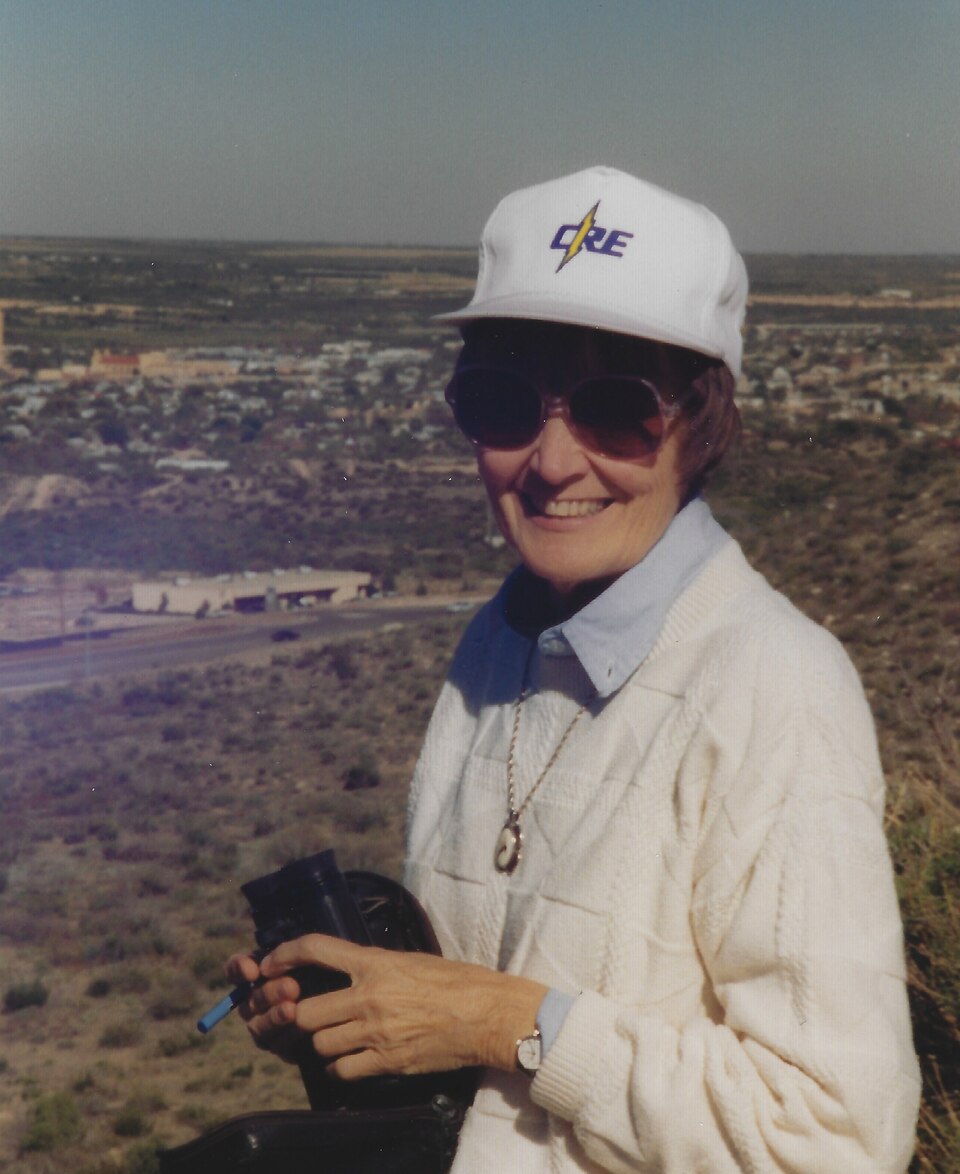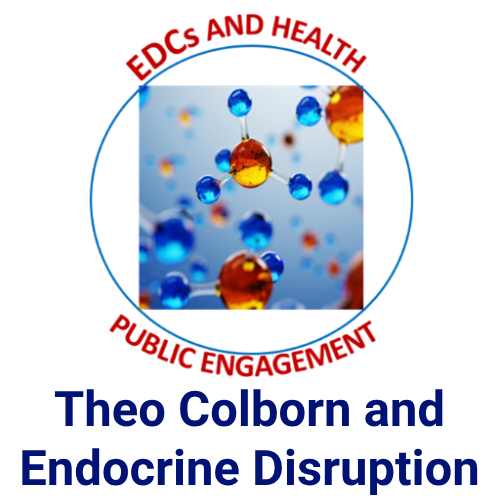Theo Colborn: Pioneer of Environmental Research
Dr. Theo Colborn (1927-2014) was an influential environmental scientist and a pioneer of environmental research known for her groundbreaking research on endocrine disrupting chemicals (EDCs). Her discoveries revealed the harmful effects of EDCs on wildlife and humans and highlighted the urgent need to address these issues for the protection of our health and the environment.

Biography
Theodora (Theo) Emily Colborn was an American environmental health analyst, zoologist, and author. She was born on March 28, 1927, in Plainfield, New Jersey, and passed away on December 14, 2014, in Paonia, Colorado.
Colborn’s early life was marked by her passion for nature and science. She earned her bachelor’s degree in pharmacy from Rutgers University in 1947 and then worked as a pharmacist for several years while rearing four children on a sheep ranch in Hotchkiss, Colorado. Once her children were grown, her interest in the natural world led her to pursue further studies; she obtained a master’s degree in zoology from Western State College in Gunnison, Colorado, in 1981 and a PhD from the University of Wisconsin-Madison in 1985 at the age of 58. She then began a second career as an environmental analyst.
Career
In 1987, after a two-year appointment as a Congressional Fellow, doing scientific research for Congressmen and Senators, Colborn joined the Conservation Foundation of Washington, DC as a Senior Analyst. Her first project involved studying the impact of Great Lakes pollution on fish, aquatic birds, and wildlife. Her 1988 report on problems suffered by 17 top predators identified reproductive and developmental problems rather than expected tumors. Colborn became increasingly concerned that environmental chemicals were impacting Great Lakes species and humans who consumed lake fish. In collaboration with other scientists, from 1991 she focused on endocrine-disrupting chemicals (EDCs), which are substances that interfere with the hormonal systems of humans and wildlife. Colborn’s groundbreaking work shed light on the potential risks and long-term effects of exposure to these chemicals, particularly during critical stages of development.

In 1996, Colborn co-authored the popular book Our Stolen Future with Dianne Dumanoski and John Peterson (Pete) Myers. Based on extensive research, the book raised awareness about the detrimental effects of EDCs on human and wildlife populations. It garnered widespread attention and became a foundational work in the field of environmental health.
Colborn’s research and advocacy efforts played a significant role in shaping policies related to chemical regulation and public health. In 2003, she co-founded the nonprofit organization TEDX (The Endocrine Disruption Exchange), which aimed to provide scientific resources and information about EDCs to policymakers, researchers, and the general public.
Throughout her career, Colborn received numerous awards and honors for her contributions to environmental health research. She was a recipient of the Society of Environmental Journalists’ Lifetime Achievement Award, the Time Magazine Environmental Heroes Award, and the Blue Planet Prize, among others.
Theo Colborn’s work continues to influence scientific research, public policy, and public awareness of the risks associated with endocrine-disrupting chemicals. Her dedication and contributions to the field of environmental health have left a lasting impact on our understanding of the complex relationship between chemicals, human health, and the environment.

Publications
Theo Colborn, an environmental health scientist, made significant contributions to the field of endocrine disruption and chemical contaminants in the environment. She co-authored several influential publications during her career. These publications highlight Colborn’s research and advocacy work, focusing on the impacts of endocrine-disrupting chemicals and other environmental contaminants on human health and wildlife. Her work played a crucial role in raising awareness about the potential dangers of these chemicals and contributed to the development of regulatory policies to protect public and environmental health. Here are some notable publications by Theo Colborn:
Colborn, T., vom Saal, F. S., & Soto, A. M. (1993). Developmental effects of endocrine-disrupting chemicals in wildlife and humans. Environmental Health Perspectives, 101(5), 378-384.
Colborn, T., Dumanoski, D., & Myers, J. P. (1996). Our stolen future: Are we threatening our fertility, intelligence, and survival? A scientific detective story. Penguin Books.
Colborn, T., Myers, J. P., & Dumanoski, D. (1997). In our own backyard: How the United States and Canada permit dangerous chemicals to assault our health and environment. Dutton Adult.
Colborn, T. (2006). A Case for Revisiting the Safety of Pesticides: A Closer Look at Neurodevelopment
Colborn, T. (2004). Endocrine Disruption Overview: Are Males at Risk?
ABSTRACT | FULL TEXT
Colborn, T. (2004). Neurodevelopment and Endocrine Disruption
Colborn, T., Kwiatkowski, C., Schultz, K., & Bachran, M. (2011). Natural gas operations from a public health perspective. International Journal of Human and Ecological Risk Assessment, 17(5), 1039-1056.
Colborn, T., & Smolen, M. J. (2014). Epidemiology and adverse health effects of PCBs in humans. Environmental Toxicology and Pharmacology, 37(2), 263-276.
Talks
Theo Colborn was an influential scientist and environmental health advocate who delivered numerous lectures and presentations throughout her career. She actively engaged in public speaking to raise awareness about the impacts of endocrine-disrupting chemicals and other environmental contaminants.
Theo Colborn’s speaking engagements spanned several decades, and she actively used these platforms to communicate scientific knowledge and promote environmental awareness. Her lectures and presentations played a crucial role in disseminating information and inspiring individuals to work towards a healthier and safer environment. Here is a list of some of her notable lectures and presentations:

- TEDx Talk: In 2012, Theo Colborn gave a TEDx talk titled “The Great Chemical Experiment,” where she discussed the pervasive presence of endocrine disruptors in our environment and the potential health consequences.
- Keynote Address at the Society of Environmental Toxicology and Chemistry (SETAC): Colborn delivered keynote addresses at various SETAC conferences, emphasizing the importance of interdisciplinary collaboration and the need for comprehensive research to understand the effects of chemical contaminants on ecosystems and human health.
- Congressional Testimony: Colborn testified before the U.S. Congress on several occasions, presenting scientific evidence and advocating for stronger regulations on endocrine-disrupting chemicals. Her testimony helped shape policy discussions on environmental health issues.
- International Conferences: Colborn frequently spoke at international conferences, such as the International Symposium on Halogenated Persistent Organic Pollutants (POPs) and the International Conference on Environmental Science and Technology. She presented her research findings, shared insights on the impacts of chemical contaminants, and called for global action.
- Public Lectures and Workshops: Colborn actively engaged with the general public, delivering lectures and workshops in community settings, universities, and public events. These presentations aimed to educate and empower individuals to take action on environmental health issues.

Theo Colborn Video Presentations
- Dr. Theo Colborn: UNSAFE: The Truth Behind Everyday Chemicals produced by Earth Focus. (27 min., December 2013, Link TV)
- Dr. Theo Colborn: Letter to the President: Theo Colborn at TEDxMidAtlantic 2012. Dr. Colborn implores the President and First Lady of the United States to act now to address the failure of current laws to protect the public against endocrine disrupting chemicals. (17 min., October 2012, TEDxMidAtlantic)
- Dr. Theo Colborn: The Male Predicament, describing how males are particularly susceptible to endocrine disrupting chemicals. (37 min., 2009, TEDX)
- Dr. Theo Colborn: Endocrine Disruption and Environmental Health: Ten Years After Our Stolen Future. This call covered the present state of endocrine disruptors, ten years after the seminal book, Our Stolen Future: Are We Threatening Our Own Fertility, Intelligence, and Survival? – A Scientific Detective Story, was published and features the authors: Theo Colborn, Dianne Dumanoski and John Peterson Myers. (60 min., May 2006, presented by the Collaborative on Health and the Environment)
OIL AND GAS
- Dr. Theo Colborn: Natural Gas Operations, Air Emission Exposure, and Recommendations to the Healthcare Community, a Continuing Medical Education (CME) course implemented by Physicians Scientists and Engineers for Healthy Energy. (45 min., April 2014, PSE)
- Dr. Theo Colborn: The Fossil Fuel Connection , a short video from LinkTV. (6 min., 2013, LinkTV.org)
- Dr. Theo Colborn: Natural Gas: The Rest of the Story. Dr. Colborn speaks to an audience in western Colorado on the hazards posed to human and environmental health by air pollution from natural gas operations. (24 min., March 2012, Citizens for a Healthy Community)
- Dr. Theo Colborn: Fracking: Implications for Human and Environmental Health. This call featured leading researchers in different fields of expertise who discussed the potential human and environmental health implications of fracking. (60 min., November 2010, The Collaborative on Health and the Environment)
- Dr. Theo Colborn: What You Need to Know About Natural Gas Production. This video illustrates how natural gas is not the ‘clean energy’ that industry touts it to be and calls for full public disclosure of all chemicals involved in drilling and fracturing. (47 min., 2009, TEDX)


Honors
Theo Colborn received recognition for her significant contributions to the field of environmental health and her efforts to raise awareness about the impacts of endocrine-disrupting chemicals. Here are some of the awards and honors she received:
- Blue Planet Prize (2010): Colborn was awarded the Blue Planet Prize, a prestigious international environmental award, for her pioneering research on endocrine disruptors and her work to protect human health and the environment.
- Rachel Carson Award (2000): She received the Rachel Carson Award from the Society of Environmental Toxicology and Chemistry (SETAC) for her outstanding contributions to environmental science and her efforts to inform policymakers and the public about the risks of endocrine-disrupting chemicals.
- Science in Society Journalism Award (1996): Colborn received this award from the National Association of Science Writers for her book “Our Stolen Future,” which raised awareness about the threats posed by endocrine disruptors.
- Lifetime Achievement Award (2012): She was honored with a Lifetime Achievement Award by the International Society of Regulatory Toxicology and Pharmacology for her research and advocacy work on endocrine disruptors and environmental health.
- Fellow of the Society of Environmental Toxicology and Chemistry (SETAC): Colborn was elected as a Fellow of SETAC in recognition of her significant contributions to the field of environmental toxicology.
These awards and honors reflect the recognition and impact of Theo Colborn’s work in the field of environmental health, endocrine disruption, and chemical contaminants. Her research and advocacy efforts continue to inspire and inform scientists, policymakers, and the general public.
© 2023 Theo Colborn and Endocrine Disruption
